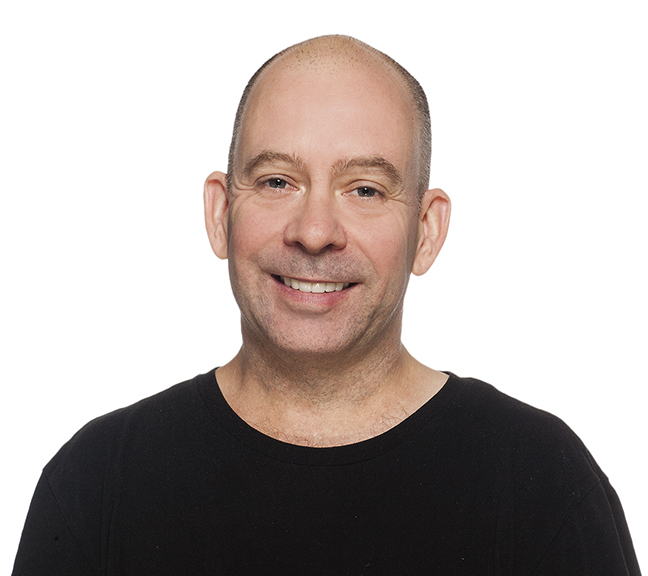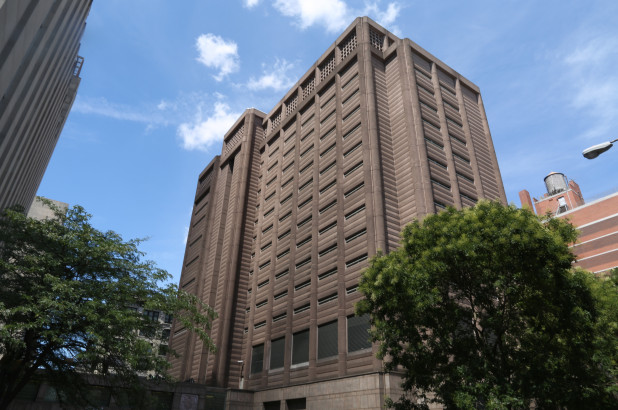Field education at Union provides an opportunity for students to bring together their education, skill, and religious commitment in a way that can help them discover their call. Students do their field work in a wide variety of locations, from churches to shelters to non-profit organizations.
Ian Case, a second-year M.Div. student, is doing his field placement at the Manhattan Detention Complex in lower Manhattan. Ian recently spoke to us about his work.
What is your field site and what do you do there?

I’m at the Manhattan Detention Complex, also known as the MDC or the Tombs, which is a jail in Manhattan. It’s part of the Department of Correction. I offer meditation there. In two of the units, the men – and it’s all men – are in individual cells, so I’m only able to meet them one-on-one, which means that I’m in more of a pastoral role. The other two units are housing units, which means that the men can come out of their cells and spend time in a common area. In those units, I can lead small meditation groups.
The MDC is in Chinatown, very close to the Civic Center and the courthouses. It’s right next to the New York Criminal Court – you can actually get from the jail to the criminal court via a pedestrian bridge. Most of the inmates at the MDC are awaiting trial or sentencing, so it’s a jail, not a prison. It’s technically a transitional place, but many of the men have been there for months (and some for years), so it’s not so transitional in practice. People in prisons are actually completing their sentences, while people in jails are just being held as they await the next stage of the process.
How has Union prepared you for this role?
The pastoral care class, Introduction to Pastoral/Spiritual Care, is directly informing my work. It helped me develop the skills to be a listening presence. In general, being around other Union students engaged in such diverse ministries spurs me on. It helps me clarify the work that I’m doing and why I’m doing it.
I’m also in a situation right now where all my classes are talking to each other. The womanist theology I read in Systematic Theology has an effect on how I am at the jail. Practice of Self-Inquiry does too. I actually think it’s the field placement that has sparked the conversation among my classes and made them come alive. My work at Union is certainly influencing my insight into my field site, but that insight is also influencing how I am at Union. The work is igniting something in all my classes that I wasn’t expecting. It’s made everything else much more profound.
You’re currently one of eight students in the Hybrid Field Education-Clinical Pastoral Education (FE-CPE) Program that Union offers. How has this program shaped your experience?
The first verbatim I did for class was really helpful. I learned so much through the process of having to remember and look at what I did. Even though it’s a lot of extra work, I think it’s invaluable. The extra support of the CPE cohort and supervisor sustains the challenging work that I’m doing at the jail.

Do the people with whom you work come from many different spiritual backgrounds?
Yes, I would say so. They’re all men and almost all people of color, but so far, I’ve met Muslims, Buddhists, Christians of various stripes, non-religious people, and more. I’m a Zen Buddhist priest, but that doesn’t necessarily define my role. The style of meditation that I offer isn’t necessarily Buddhist. I want to make sure that I’m available to anyone who wants to talk to me.
How has the work affected your own faith or theological self-understanding?
Being in the jail means that I’m working within a larger carceral system. I often feel that my work is not actually going to affect that or transform it at all. But at the same time, when I’m actually engaged in the work itself, there are moments of connection, moments of humanity that emerge in a deeply dehumanizing place. One of the Bodhisattva vows in Buddhism is, “Beings are numberless. I vow to free them,” which is an impossible vow. Working in the jail gives that vow a lot of meaning because I’m in a situation that seems completely impossible to transform – and, at the same time, when I share moments of connection with the men, it’s not so helpless or hopeless. That’s a deepening of trust and faith that I can be of a little benefit.
In those moments, I just listen. 90% of what I do is just listening. I think it’s a completely new experience for a lot of these men to have someone listen and not react, retaliate, or cut them off. I try to create a space that enables them to do that, and when it happens, they sometimes come alive. I don’t want to come across like I’m just going in there to provide this service for them, though. It’s both challenging and personally enriching for me. I’m learning how to be human with these men.
Is there anything else that you think people should understand about the context of your work?
I came into my field placement with many preconceived ideas about the systemic racial oppression that undergirds the American incarceration complex. But I wasn’t as prepared for the mundane, bureaucratic aspect of the process. The system is wrapped in a bureaucracy with a dull life of its own. It’s subtler than the glaring manifestations of the systemic injustice, but its subtlety makes it dangerous.
